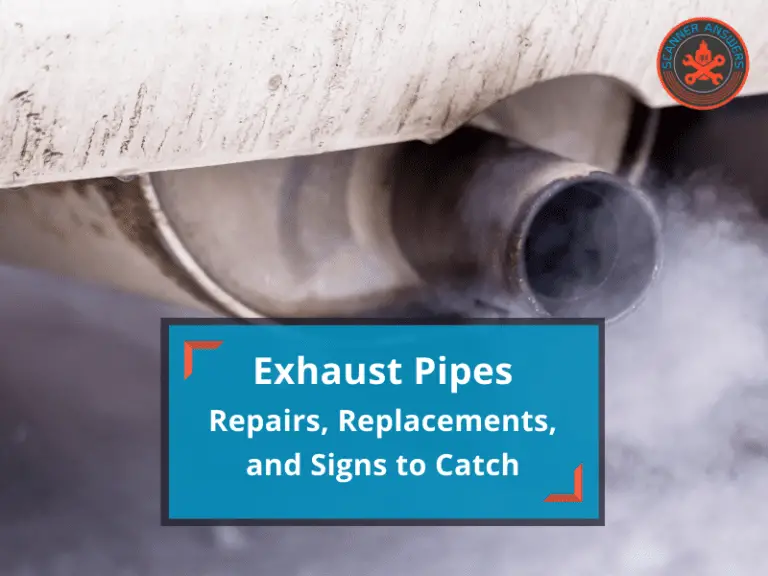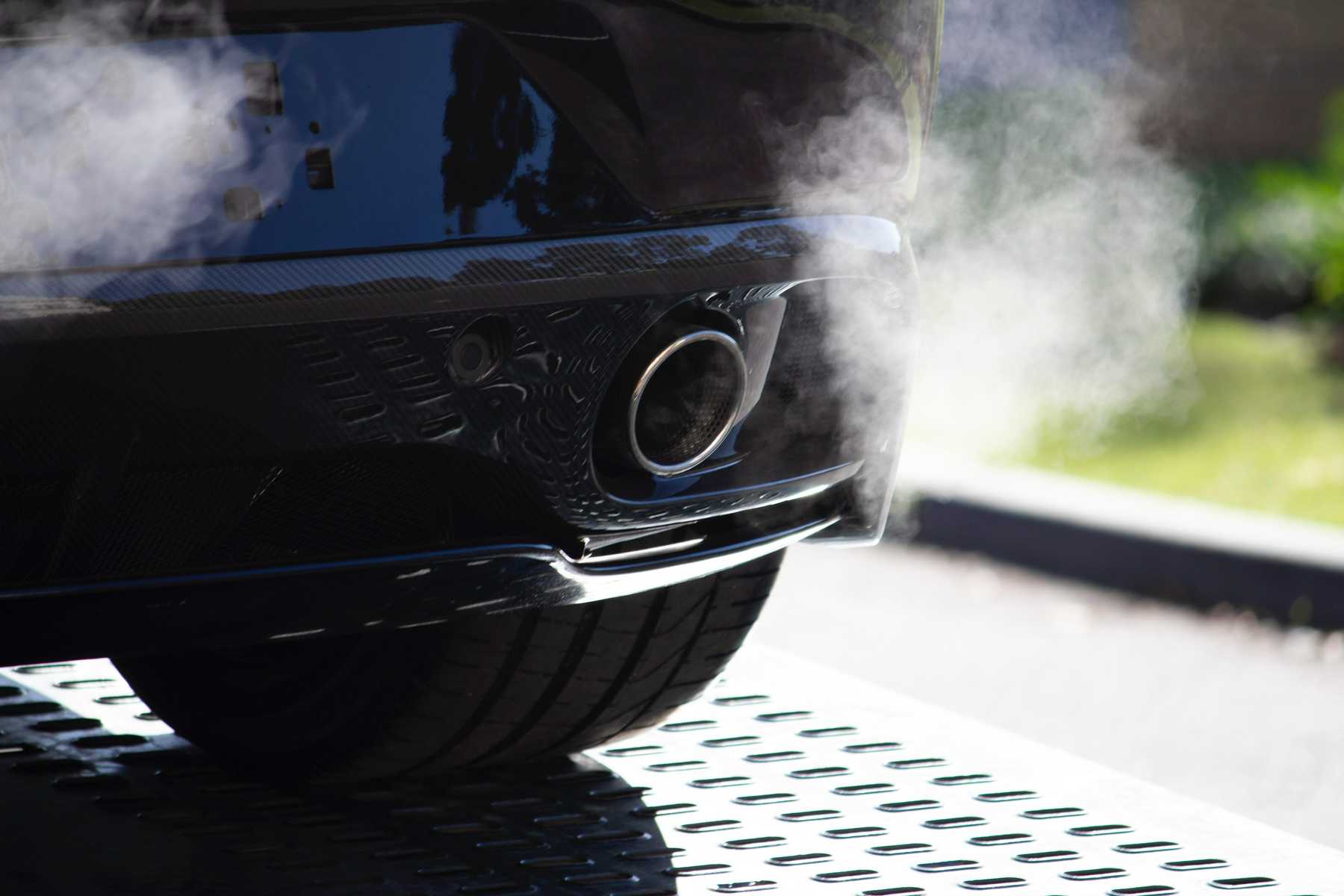How Much To Fix Exhaust Leak: A Comprehensive Guide For Car Owners
Have you ever heard that hissing or tapping sound coming from under your car? Yeah, that could be an exhaust leak, my friend. And while it might seem like a small issue at first, ignoring it can lead to bigger problems down the road. In this guide, we'll dive deep into how much it costs to fix an exhaust leak and what you need to know about it.
Exhaust leaks are not just annoying; they can also affect your car's performance, fuel efficiency, and even your health. If you're wondering how much it might cost to get it fixed, don't worry—we've got you covered. This article will break it all down for you, from the causes of exhaust leaks to the costs involved and how to prevent them in the future.
Whether you're a DIY enthusiast or prefer to leave the job to the pros, understanding the costs and options will help you make the best decision for your car. So, buckle up and let's explore the world of exhaust leaks together!
Here's a quick overview of what we'll cover:
- What Causes Exhaust Leaks?
- Signs of an Exhaust Leak
- How Much Does It Cost to Fix an Exhaust Leak?
- DIY vs. Professional Repair
- Preventing Future Exhaust Leaks
- Common Misconceptions About Exhaust Leaks
What Causes Exhaust Leaks?
Exhaust leaks don't just happen out of nowhere. There are several reasons why your car's exhaust system might start leaking. One common cause is rust or corrosion. Over time, the metal in your exhaust system can wear out, especially if you live in a place with a lot of moisture or road salt. Another culprit is vibrations from the engine, which can loosen connections or create cracks in the pipes.
Driving over rough roads or hitting potholes can also damage your exhaust system. These impacts can bend or crack the pipes, leading to leaks. Lastly, poor-quality parts or improper installation during repairs can cause leaks to develop sooner than expected. So, yeah, it's not just one thing—it's a combination of factors.
Common Areas Where Leaks Occur
Exhaust leaks can happen anywhere along the exhaust system, but some areas are more prone to issues than others. The most common spots include:
- Exhaust manifold gaskets
- Catalytic converter
- Muffler connections
- Pipes near the rear of the car
These parts endure a lot of heat and vibration, making them susceptible to wear and tear. If you notice any unusual sounds or smells, it's worth checking these areas first.
Signs of an Exhaust Leak
Now that we know what causes exhaust leaks, let's talk about how to spot them. One of the most obvious signs is hearing a hissing or tapping sound when the engine is running. This noise usually gets louder as you accelerate, so it's pretty hard to miss. Another red flag is a decrease in fuel efficiency. If your car suddenly seems to be guzzling gas faster than usual, an exhaust leak could be the culprit.
On top of that, you might notice a strong smell of exhaust fumes inside the cabin. This is not only unpleasant but also dangerous, as it can lead to carbon monoxide poisoning. So, if you catch that smell, get your car checked out ASAP. Lastly, pay attention to any rattling sounds or vibrations coming from under the car. These could indicate loose or damaged exhaust components.
Why You Shouldn't Ignore an Exhaust Leak
Ignoring an exhaust leak isn't just bad for your car—it's bad for your health and wallet too. The fumes that escape from a leak can seep into the cabin, exposing you and your passengers to harmful gases. Plus, the extra strain on your engine can lead to higher fuel consumption and reduced performance. Over time, these issues can cause more damage to your car, resulting in even higher repair costs.
How Much Does It Cost to Fix an Exhaust Leak?
This is the question we've all been waiting for, right? The cost of fixing an exhaust leak can vary depending on several factors, including the location of the leak, the severity of the damage, and the make and model of your car. On average, you can expect to pay anywhere from $150 to $500 for a repair. But let's break it down further.
For minor leaks, such as those caused by a loose clamp or gasket, the cost can be as low as $50 to $100. These repairs usually involve replacing the gasket or tightening the connections. However, if the leak is due to a damaged catalytic converter or muffler, the cost can skyrocket to $1,000 or more. High-performance or luxury cars might also have higher repair costs due to the use of specialized parts.
Factors That Affect Repair Costs
Here are some factors that can influence how much you'll pay to fix an exhaust leak:
- Location of the leak: Leaks closer to the engine can be trickier to repair and may require more labor.
- Type of damage: A simple gasket replacement is cheaper than replacing a catalytic converter.
- Car model: Luxury or high-performance cars often require more expensive parts and labor.
- Shop rates: Prices can vary depending on the mechanic or shop you choose.
It's always a good idea to get multiple quotes before committing to a repair. This way, you can compare prices and choose the best option for your budget.
DIY vs. Professional Repair
If you're handy with tools, you might consider fixing the exhaust leak yourself. For minor issues, such as replacing a gasket or tightening a clamp, a DIY repair can save you money. However, if the leak is more serious, it's usually best to leave it to the professionals. Attempting a complex repair without the right tools or experience can lead to further damage and higher costs.
Before you decide to tackle the job yourself, make sure you have the necessary tools and knowledge. You'll also need to source the right parts, which can be tricky if you're not familiar with your car's make and model. If you're unsure, it's always safer to consult a professional mechanic.
Tools You'll Need for a DIY Repair
If you're going the DIY route, here's a list of tools you might need:
- Socket set
- Wrenches
- Exhaust sealant
- New gaskets or clamps
- Lift or jack stands
Remember, safety first! Make sure the car is properly secured before you start working under it. And if you're not confident in your abilities, don't hesitate to call in the pros.
Preventing Future Exhaust Leaks
While you can't completely prevent exhaust leaks, there are steps you can take to reduce the risk. Regular maintenance is key. Inspect your exhaust system during routine oil changes or tire rotations. Look for signs of rust, corrosion, or loose connections. Catching issues early can save you a lot of money in the long run.
Using high-quality parts during repairs can also help. Cheaper parts might seem like a good deal, but they often wear out faster, leading to more frequent repairs. Lastly, avoid driving over rough roads or potholes whenever possible. These impacts can damage your exhaust system over time.
How Often Should You Inspect Your Exhaust System?
Experts recommend inspecting your exhaust system at least once a year or every 10,000 to 15,000 miles, whichever comes first. If you drive in harsh conditions, such as snowy or salty roads, you might want to inspect it more frequently. Regular inspections can help catch small issues before they turn into big problems.
Common Misconceptions About Exhaust Leaks
There are a few myths out there about exhaust leaks that can lead to confusion. One common misconception is that all exhaust leaks are expensive to fix. As we've seen, minor leaks can be relatively cheap to repair. Another myth is that you can ignore a small leak until it gets worse. Trust me, that's not a good idea. Even a small leak can lead to bigger problems if left unchecked.
Some people also believe that exhaust sealant is a permanent fix for leaks. While sealant can be useful for temporary repairs, it's not a long-term solution. For a proper fix, you'll need to replace the damaged parts or tighten the connections.
Debunking the "Sealant Fix" Myth
Exhaust sealant can be tempting because it's cheap and easy to apply. But here's the thing: it only works for small, surface-level leaks. If the leak is caused by a cracked pipe or damaged gasket, sealant won't do much good. In fact, using sealant on a serious leak can make it harder for a mechanic to diagnose and repair the issue later on.
Conclusion
In conclusion, fixing an exhaust leak doesn't have to break the bank if you catch it early. The cost of repair can range from $150 to $500, depending on the severity of the damage and the location of the leak. Regular maintenance and inspections can help prevent future leaks and save you money in the long run.
So, if you hear that hissing sound or smell exhaust fumes inside your car, don't ignore it. Take action and get your car checked out. And if you're feeling adventurous, you can always try fixing it yourself—for minor issues, of course. But remember, when in doubt, call in the pros.
Thanks for reading, and don't forget to share this article with your fellow car enthusiasts. If you have any questions or comments, drop them below. We'd love to hear from you!

How much to fix exhaust leak Patching Vs Replacing

How to Find and Fix an Exhaust Leak In the Car

How To Find And Fix A Car Exhaust Leak